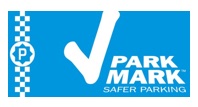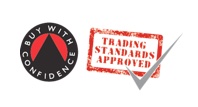Airport Security
Airport Security Information
Airport Security has tightened significantly since the events that took place on 9/11. If you haven’t flown since then, or you’re a first time flyer, it is essential that you are aware of airport security procedures, so you can sail through, and not cause unnecessary delays for yourself and /or your family. Please use this as a guide only, and check the Airports websites for more information.
How much time?
- Long-haul flights – check in 3 hours prior to departure
- European flights – check in 2 hours prior to departure
- Domestic flights – check in 90 minutes prior to departure
General Tips
- Have your boarding card / documents ready for inspection
- Understand the baggage restriction rules
- Place all liquids, gels, creams and pastes in containers of 100ml or less, in a clear, re-sealable, plastic bag for security staff to x-ray separately
- Be ready to take off your coat, shoes, belts and hats if asked
- Take your laptop, tablet or any other large electrical items from your hand luggage for separate screening
- Security are there to help you – be nice to staff and always follow procedures
Baggage restrictions / restricted items
- Ensure you check with your airline, and with the airport, what their baggage regulations are. Failure to do so will only slow you down at security, whilst having any prohibited / restricted items confiscated, usually without return or compensation.
Hand baggage rules
- Generally it is advised, to keep hand baggage at the minimum, and although it is important to check individual baggage rules with your airline / carrier, they do offer these general guidelines;
- Allow yourself plenty of time to be screened at security. They cannot rush through this important point, just because you are running late.
- One piece of hand luggage only, which generally should not exceed 56cm x 45cm x 25cm. You may or may not be allowed to carry a handbag also, please double check with your airline.
- Place all liquids, gels, creams and pastes in containers of 100ml or less, in a clear, re-sealable, plastic bag (maximum size: 20cm x 20cm) for security staff to x-ray separately.
- Please check below, or on the Airport website, for a full list of restricted, and fully prohibited items such as sharp items.
Hold baggage / Check In baggage rules
- Most airports advise & recommends that its passengers place most items in their hold baggage so that getting through security is quicker, and easier. You are also allowed to take many restricted items such as razors in your hold baggage, which is checked – in, that you are unable to take in your hand luggage. Please see lists of restricted / prohibited items below, whilst also checking with your airline.
Medicines
- Please check allowances for medical equipment such as syringes for diabetes, and other medication you need to travel with. You may need to phone your airline carrier or airport to check, and may need to provide proof of the medical condition you have.
- Always have your prescription / medical note with you
- There is a 100ml maximum with medicines also, and must be kept in a transparent, re-sealable bag.
- There’s no limit for powder or pills, but it is advised that you check with the airline, and get their approval.
Baby Food
- Following the events of 9/11, there are now tight rules around the carrying of baby foods / liquids.
- It is advised you only bring the amount that you need for the journey.
- Powdered milk foods, and baby wipes are accepted
- Any milk or food in liquid, gel or paste form may need to be tasted by yourself. This can sometimes be up to 50% of the contents.
- Boots offer a great service, where you can pre-order, and collect baby milk from the departure lounge, to avoid an issue at security.
Restricted Items
Common restricted items include, but are not limited to;
- Scissors
- Razor blades
- Knives
- Household cutlery
- Party poppers
- Hypodermic needles (unless required for medical reasons)
- Tools
- Catapults / slingshots
- Toy or replica guns (Inc. water pistols)
- Sporting bats and clubs
- Billiard, snooker or pool cues
- Darts
Prohibited Items
Common prohibited items include, but are not limited to;
- Flammable liquids and solids
- Oxidisers – such as bleaching powders
- Organic peroxides
- Gas cylinders
- Tear gas cylinders
- Infectious substances – live virus materials
- Wet car cell batteries
- Instruments containing magnets
- Instruments containing mercury
- Magnetrons
- Fireworks
- Non-safety matches, fire-lighters, lighter fuel
- Paints, thinners
- Vehicle fuel system parts which have contained fuel.
- Poisons, arsenic, cyanide, weed killer
- Acids, corrosives, alkalis, caustic soda
- Creosote, quicklime, oiled paper
- Radioactive materials
Security assistance lanes
- Many Airports have introduced assistance lanes for those with reduced mobility, or who may be travelling with young children, to help get through security easily, and more conveniently. Be sure to look out for the assistance lane signs.
Security assistance lanes
- Many Airports have introduced assistance lanes for those with reduced mobility, or who may be travelling with young children, to help get through security easily, and more conveniently. Be sure to look out for the assistance lane signs.
Body Scanners
- You may be required to be screened using body scanning equipment. These Body Scanners are there to provide you with an extra layer of security, and are completely safe to passengers.
- They have been accepted by the Government and introduced to, not only Gatwick Airport, but most airports around the UK.
- Please see Gatwick Airports full information of body scanners here – http://www.gatwickairport.com/Documents/Bodyscan_leaflet.pdf
Passport control
- Passport Control is the first step for all passengers upon arriving at the Airport, unless you have a connecting flight.
- You must get into the correct queues for either:
- European Union (EU), European Economic Area (EEA), British nationals and Swiss nationals – (If you hold an EU, EEA or Swiss passport)
- Other nationalities – (Non EU/Non EEA passport holders)
- Please have your passport ready on the page that bears the photograph
- Please ensure that all Visa, and entry cards are filled out correctly
- You will be met at the passport desk by a UK Border Agency officer, who will need to be shown your passport, and any other supporting travel documents.
- Please remember that your passport must be within date, and must not expire during your visit.
- If you are on an international connecting flight, you will not need to clear passport control / customs
- If you are on an international to UK / IRE connecting flight, you will need to clear passport control / customs
- Please visit the UK Border Agency Website, for full details and more information on entry requirements.
- e-Passports
- Some airports have the facilities to accept the new chipped EU Passports. If you hold one of these chipped Passports, are 18 years old or over, you may use the e-passport gates where you simply scan your passport upon arrival.
Duty Free / Customs
Every passenger arriving in the UK has to clear Customs. Three general rules from most Airports are;
- Never carry anything into the UK for somebody else
- Never bring prohibited goods into the UK. If in doubt, ask at the Customs information point.
- If you are unsure about your duty/tax free entitlement, go to the Customs information point.
- There are three different channels at customs;
- Red – For all passengers with goods to declare
- Green – If your journey began in a country outside the EU, and you have nothing to declare. Your hold baggage will / may have a white tag.
- Blue – If your journey started in an EU country, and you have nothing to declare.
- For more information please visit the HM Revenue & Customs website.
Customs allowances
- Each country has different Duty Free Allowances. It is very important that you check what they are before flying, if you intend to bring back cigarettes, perfumes, alcohol and more – If you exceed the allowances outlined, customs officers have the right to confiscate items, without return or compensation, and you may even face a fine.
- Gatwick Airports website has a great tool, which allows you to easily check your allowances for your particular country / destination – Please use it before you travel http://www.gatwickairport.com/check-in-security/customs/customs-allowances
Know your rights.
- There are many policies lay out by the airport, and your airline, but please be aware you do have your own rights as a traveller too. If you feel you have been violated in any way, visit the Civil Aviation Authority website who offer consumer protection information for the air passenger, whilst also offering full advice on your legal rights whilst flying./li>
Finally – Be nice to your airline staff at the Airport.
It is very easy to get frustrated at the airline, cabin, and security and counter staff at the airport if things go wrong like cancelled flights. Please remember that all these airport staff are doing their jobs, and are there to help you, and are people just like you. In stressful airport situations, try and be as understanding as possible – This will not only help things get resolved, but the staff will notice, and appreciate your manner, and be far more willing to help. So be nice

 Park Mark Safer Parking Award
Park Mark Safer Parking Award
 West Sussex Trading Standards
West Sussex Trading Standards